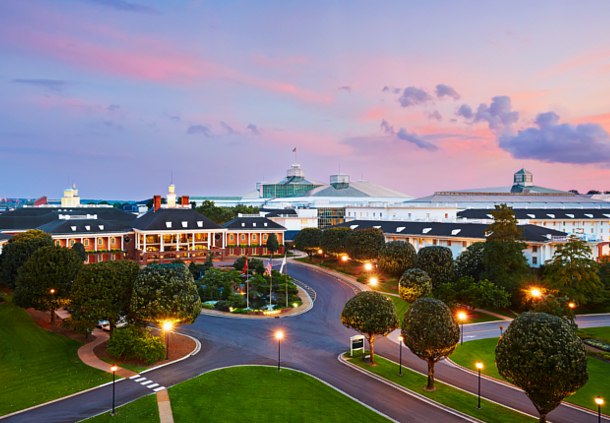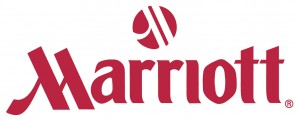
Marriott’s Gaylord Opryland Resort in Nashville made sure it had a corner on the Wi-Fi market by blocking the competition and charging $250-1,000 to gain access to the hotel’s Wi-Fi.
Marriott International, Inc. and its subsidiary, Marriott Hotel Services, Inc., have been fined $600,000 after a Federal Communications Commission investigation uncovered hotel employees intentionally interfering with personal Wi-Fi networks during convention events, forcing guests and exhibitors to use the hotel’s Wi-Fi network, at a cost of up to $1,000.
The FCC Enforcement Bureau, in response to a guest’s complaint that the hotel was intentionally jamming every Wi-Fi network except their own, discovered hotel workers were using a Wi-Fi monitoring system at the Gaylord Opryland in Nashville to prevent visitors from using their personal mobile broadband hotspots, a serious violation of Section 333 of the Communications Act.
Employees of Marriott, which has managed the day-to-day operations of the Gaylord Opryland since 2012, were tasked with using features of the hotel’s Wi-Fi monitoring system at the Gaylord Opryland to contain and/or de-authenticate guest-created Wi-Fi hotspot access points in the conference facilities. In some cases, employees sent de-authentication packets to the targeted access points, which would dissociate consumers’ devices from their own Wi-Fi hotspots and lock out the devices to keep them from connecting in the future.
Guests and exhibitors arriving expecting to use their AT&T, Verizon, Sprint or T-Mobile mobile hotspots found them completely disabled while on the property. Even adjacent Wi-Fi networks from nearby properties stopped working the moment users entered or approached the hotel grounds.
At the same time the hotel was blocking connections, Marriott charged conference exhibitors and guests dependent on Wi-Fi to run their exhibits or manage business matters connection fees ranging from $250-$1,000 per device for access to the Gaylord’s Wi-Fi network, the only network available.
“Consumers who purchase cellular data plans should be able to use them without fear that their personal Internet connection will be blocked by their hotel or conference center,” said Enforcement Bureau chief Travis LeBlanc. “It is unacceptable for any hotel to intentionally disable personal hotspots while also charging consumers and small businesses high fees to use the hotel’s own Wi-Fi network. This practice puts consumers in the untenable position of either paying twice for the same service or forgoing Internet access altogether.”
Marriott claimed they were just protecting their guests from cyber attacks and the FCC’s decision to fine the hotel has created confusion across the hospitality industry.
 “Marriott has a strong interest in ensuring that when our guests use our Wi-Fi service, they will be protected from rogue wireless hot spots that can cause degraded service, insidious cyber-attacks and identity theft,” Marriott said in a statement. “Like many other institutions and companies in a wide variety of industries, including hospitals and universities, the Gaylord Opryland protected its Wi-Fi network by using FCC-authorized equipment provided by well-known, reputable manufacturers. We believe that the Opryland’s actions were lawful. We will continue to encourage the FCC to pursue a rule making in order to eliminate the ongoing confusion resulting from today’s action and to assess the merits of its underlying policy.”
“Marriott has a strong interest in ensuring that when our guests use our Wi-Fi service, they will be protected from rogue wireless hot spots that can cause degraded service, insidious cyber-attacks and identity theft,” Marriott said in a statement. “Like many other institutions and companies in a wide variety of industries, including hospitals and universities, the Gaylord Opryland protected its Wi-Fi network by using FCC-authorized equipment provided by well-known, reputable manufacturers. We believe that the Opryland’s actions were lawful. We will continue to encourage the FCC to pursue a rule making in order to eliminate the ongoing confusion resulting from today’s action and to assess the merits of its underlying policy.”
Several hotel chains have turned to Internet connectivity as a revenue generator, but few hotels have asked as much as Marriott. Some hotel chains charge as much as $22 per day for permission to connect to the facility’s Wi-Fi network, convincing many guests to use their own personal mobile devices as Wi-Fi hotspots instead. But Marriott’s debacle with the FCC allowed several chains to get an edge on the competition and trumpet they are not in the Wi-Fi jamming business:
- Hilton Hotels: “We do not block or jam any wireless transmissions at our properties;”
- Kempinski and Hyatt Hotels: There are no policies that allow our hotels to jam, block or prevent guests’ use of personal Wi-Fi hotspots;
- InterContinental Hotels Group (Candlewood Suites, Crowne Plaza, Even, Holiday Inn, Holiday Inn Express, Hotel Indigo, Hualuxe, InterContinental and Staybridge Suites) has no problem with guests using personal networks on hotel property, but why bother when any guest can enroll in the IHG Rewards Club at no charge which gives them free unlimited access to the chain’s Wi-Fi;
- The majority of Wyndham’s hotels are independently owned and operated, but most already offer complimentary Wi-Fi to guests, according to a hotel spokesperson.
Marriott was convinced it was not in violation of the law because it was not using an illegal signal jammer, commonly available overseas and often used in restaurants and theaters to silence cell phones. Marriott’s guests could still make and receive phone calls and text messages. But the Enforcement Bureau found that argument uncompelling after discovering hotel employees intentionally targeting any non-hotel hotspots they could locate to disconnect or block consumers from using them.
The $600,000 fine, the first of its kind for an incident of this kind, won’t mean much to the Marriott Gaylord Opryland. For staying at one of the hotel’s 3,000 rooms, Marriott charges $18 a day in “resort fees” for the “free Internet access,” $6.99 a day for enhanced Internet speed “suitable for downloading files, video chat and video streaming,” and $21-28 a day to park your car there.
But the FCC enforcement action has put a stop to this kind of access blockade spreading further. Under the terms of Marriott’s agreement with the FCC announced today, Marriott must cease the unlawful use of Wi-Fi blocking technology and take significant steps to improve how it monitors and uses its Wi-Fi technology at the Gaylord Opryland. Marriott must institute a compliance plan and file compliance and usage reports with the Bureau every three months for three years, including information documenting any use of access point containment features at any U.S. property that Marriott manages or owns.


 Subscribe
Subscribe